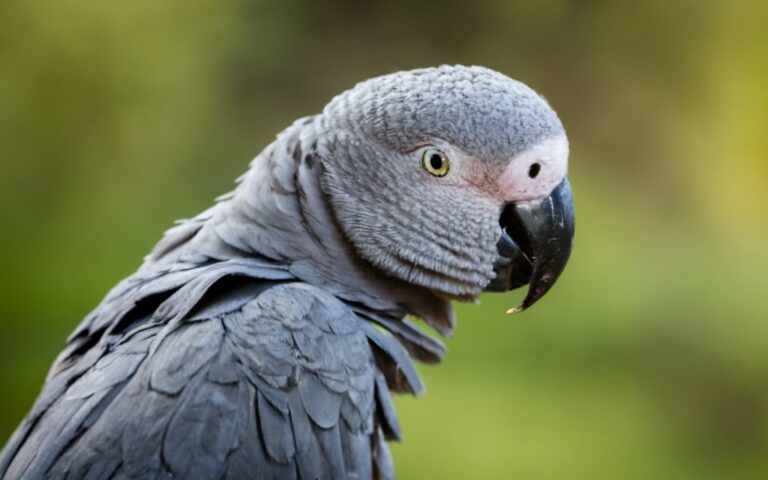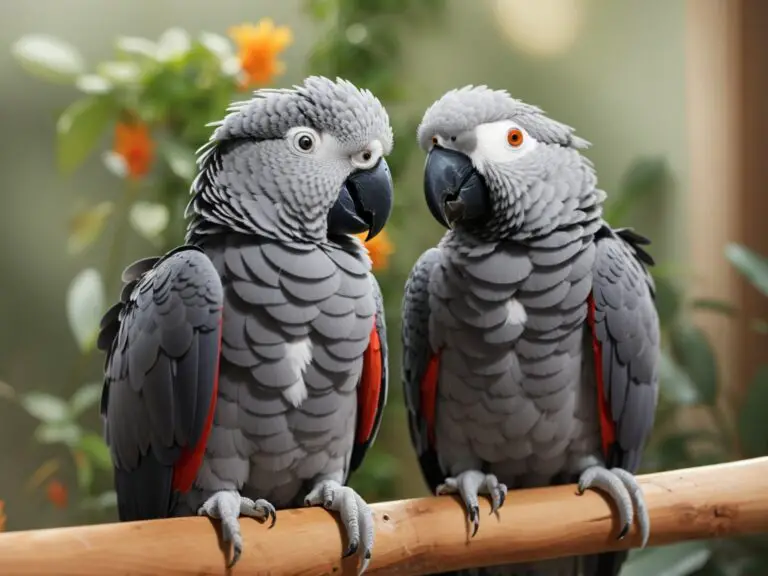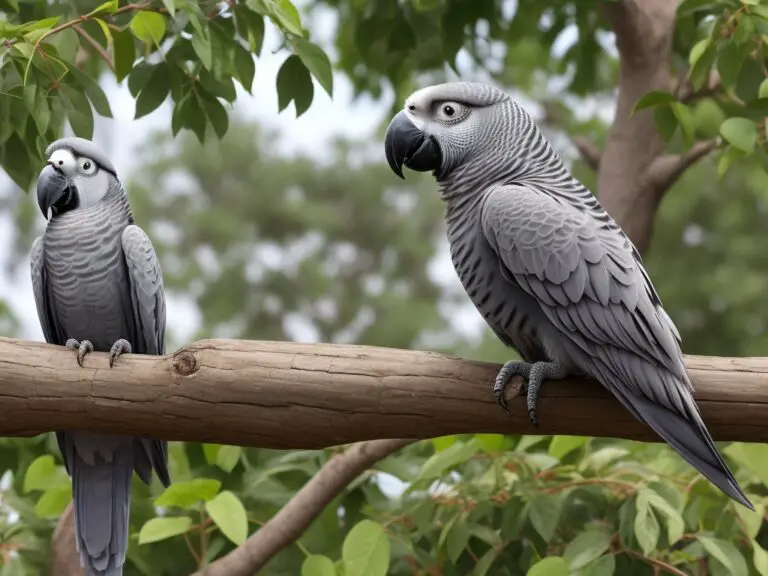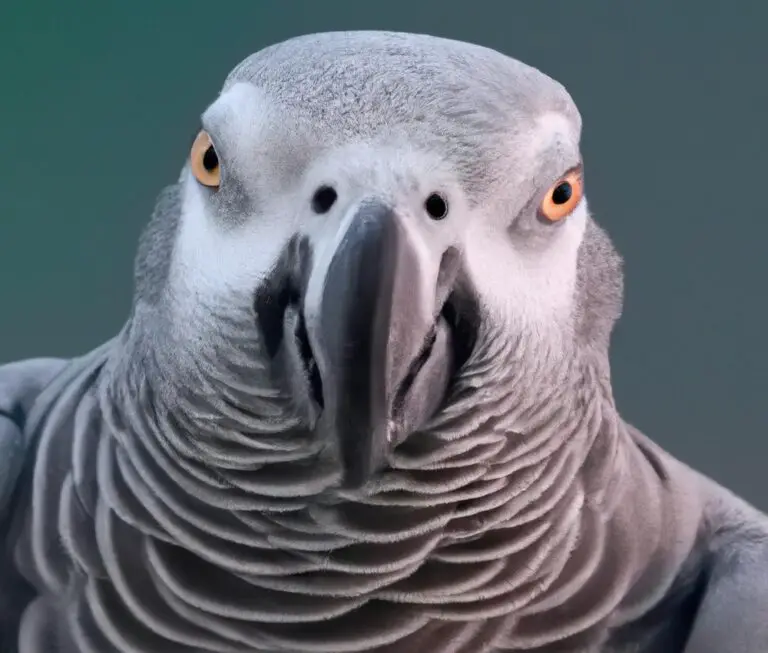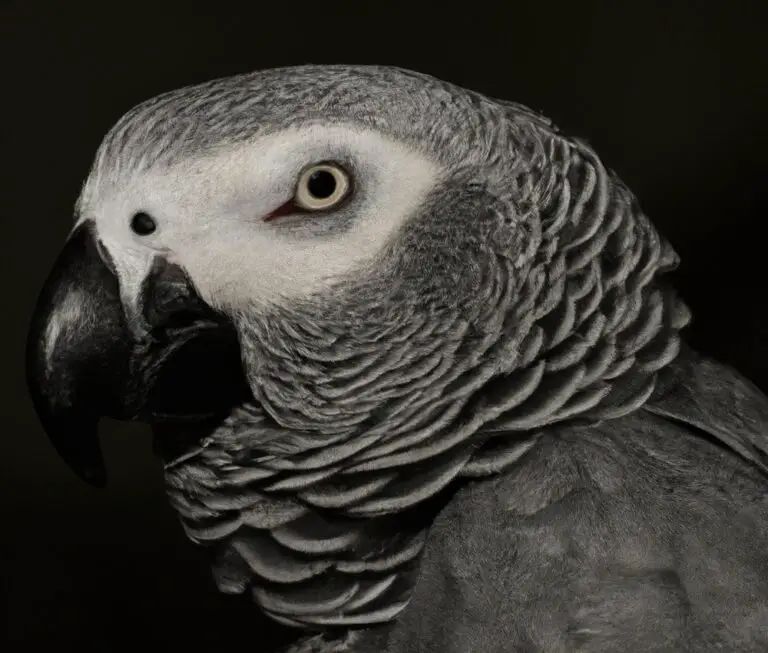What Are The Common Health Issues In African Grey Parrots?
Key Takeaways:
- African Grey Parrots are prone to feather plucking, which can be caused by stress or boredom.
- Respiratory infections are a common health issue in African Grey Parrots, often caused by poor ventilation or exposure to drafts.
- African Grey Parrots are susceptible to vitamin A deficiency, which can lead to immune system problems and respiratory issues.
- Proactive monitoring of diet, environment, and stress levels can help prevent common health issues in African Grey Parrots.
Are you the proud owner of an African Grey Parrot? These captivating creatures are known for their intelligence and ability to mimic human speech.
But just like any other pet, African Grey Parrots are susceptible to various health issues.
In this article, we will explore the common health problems faced by African Grey Parrots, including Psittacine Beak and Feather Disease, Proventricular Dilatation Disease, Aspergillosis, Psittacosis, and Vitamin A Deficiency. As a bird enthusiast, I have witnessed firsthand the impact these health issues can have on these beautiful birds.
Join me as we delve into the signs, prevention, and treatment options for these health concerns, ensuring the well-being and happiness of our feathered friends.
| Health Issue | Symptoms | Treatment | Prevention |
|---|---|---|---|
| Psittacine Beak and Feather Disease (PBFD) | – Feather loss – Beak abnormalities – Immune system suppression | – Supportive care – Antiviral treatments – Immune system boosters | – Proper hygiene practices – Quarantine new birds – Regular vet check-ups |
| Polyomavirus | – Weight loss – Digestive issues – Weakness | – Supportive care – Fluid therapy – Nutritional support | – Vaccination – Quarantine new birds – Good hygiene |
| Aspergillosis | – Respiratory distress – Wheezing – Depression | – Antifungal medications – Nebulization therapy | – Proper ventilation – Clean living environment – Regular cleaning of toys and perches |
| Proventricular Dilatation Disease (PDD) | – Weight loss – Regurgitation – Neurological signs | – Supportive care – Medications to manage symptoms | – Avoiding contact with infected birds – Proper hygiene practices – Quarantine new birds |
| Avian Tuberculosis | – Weight loss – Poor appetite – Respiratory symptoms | – Antibiotic treatment – Supportive care | – Regular vet check-ups – Good hygiene practices |
Common Health Issues in African Grey Parrots
African Grey Parrots can suffer from various health issues, including Psittacine Beak and Feather Disease (PBFD), Proventricular Dilatation Disease (PDD), Aspergillosis, Psittacosis, and Vitamin A Deficiency.
Psittacine Beak and Feather Disease (PBFD)
Psittacine Beak and Feather Disease (PBFD) is a viral infection that affects African Grey Parrots and other parrot species.
It can cause feather loss, beak deformities, and immune system suppression.
There is no known cure, but supportive care can help manage symptoms.
Regular veterinary check-ups and good hygiene practices are crucial in preventing the spread of PBFD.
Proventricular Dilatation Disease (PDD)
Proventricular Dilatation Disease (PDD) is a viral infection that affects African Grey Parrots. It affects the nervous system and the digestive system, leading to problems with digestion and absorption of food.
Symptoms include weight loss, regurgitation, and neurological signs.
PDD is a serious condition with no cure, and treatment focuses on managing symptoms and providing supportive care. Regular veterinary check-ups and maintaining a clean and nutritious diet can help prevent and manage PDD in African Grey Parrots.
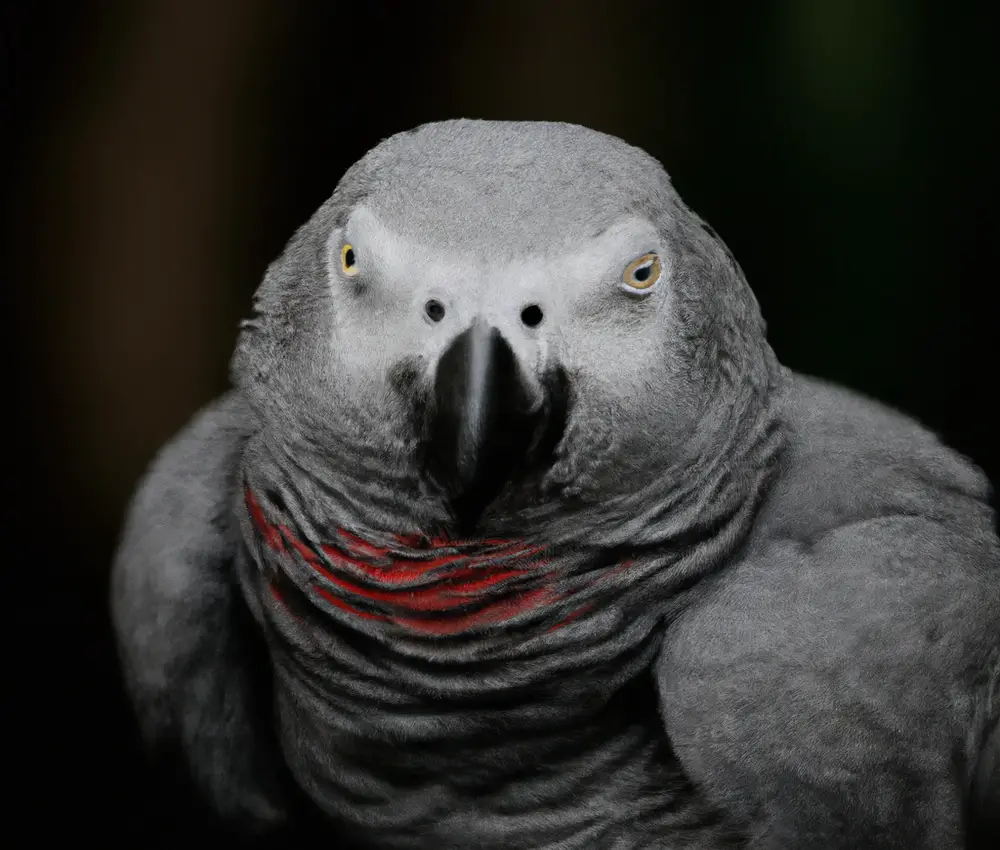
Aspergillosis
Aspergillosis is a common health issue in African Grey Parrots. It is caused by a fungus called Aspergillus, which affects the respiratory system.
Symptoms include difficulty breathing, coughing, sneezing, and nasal discharge.
Treatment involves medication to eliminate the fungus and supportive care to strengthen the bird’s immune system. Regular veterinary check-ups and maintaining a clean environment are crucial in preventing Aspergillosis.
Psittacosis
Psittacosis, also known as parrot fever, is a bacterial infection that can affect African Grey Parrots.
It primarily spreads through the inhalation of infected bird droppings or respiratory secretions.
Symptoms include respiratory problems, fatigue, and fever.
Prompt veterinary care and treatment with antibiotics are essential for recovery.
Vitamin A Deficiency
Vitamin A deficiency is a common health issue in African Grey Parrots.
It can lead to various problems, including poor feather quality, respiratory issues, and even blindness.
Signs and symptoms may include changes in behavior, appetite, and weight.
Providing a balanced diet rich in vitamin A and regular veterinary check-ups are important preventive measures.
Treatment options include medication, diet modification, and supportive care.
Signs and Symptoms of Health Issues
Signs and Symptoms of health issues in African Grey Parrots include behavioral changes, changes in appetite and weight, respiratory problems, and feather plucking.
Behavioral Changes
The African Grey Parrot, like other parrots, may exhibit behavioral changes when experiencing health issues. Some common behavioral changes include increased aggression, irritability, decreased vocalization, decreased activity, and changes in perching or balance.
It’s important to pay attention to these changes as they may indicate underlying health problems.
Regular veterinary check-ups and prompt treatment can help address these issues.
Changes in Appetite and Weight
Changes in appetite and weight are common signs of health issues in African Grey Parrots. If your parrot suddenly loses its appetite or experiences weight loss, it could indicate an underlying problem.
On the other hand, increased appetite and rapid weight gain may also be a cause for concern.
It is important to monitor your parrot’s eating habits and weight regularly to identify any changes and seek veterinary care if necessary. Changes in appetite and weight can be symptoms of various health issues such as nutritional deficiencies, infections, or gastrointestinal problems.
Respiratory Problems
Respiratory problems in African Grey Parrots can be caused by various factors like infections, allergies, or exposure to irritants.
Common symptoms include coughing, wheezing, sneezing, nasal discharge, and difficulty breathing.
Prompt veterinary care is essential for accurate diagnosis and appropriate treatment.
Environmental changes, medication, and supportive care may be recommended to help alleviate respiratory issues.
Preventive Measures for African Grey Parrots
To keep your African Grey Parrot healthy, focus on providing a balanced diet, maintaining hygiene and cleanliness, scheduling regular veterinary check-ups, and providing environmental enrichment.
Providing a Balanced Diet
To provide a balanced diet for your African Grey Parrot, make sure to offer a variety of fresh fruits, vegetables, and high-quality pelleted bird food.
Include foods rich in vitamin A, such as sweet potatoes and carrots.
Avoid feeding toxic foods like avocado, chocolate, and caffeine.
Also, provide clean water and limit the amount of sugary treats.
Maintaining Hygiene and Cleanliness
Maintaining hygiene and cleanliness is essential for the health and well-being of African Grey Parrots.
Here are some tips:
- Clean the cage regularly: Remove droppings, food debris, and replace dirty bedding or liners.
- Provide fresh food and water: Replace food and water daily to prevent contamination and bacterial growth.
- Keep the environment clean: Clean the surrounding area of the cage to prevent the accumulation of dust and debris.
- Use bird-safe cleaning products: Avoid using harsh chemicals and opt for bird-safe cleaning solutions to avoid exposing your parrot to harmful substances.
- Wash your hands before handling your parrot: This helps prevent the transfer of bacteria or germs onto your bird’s feathers or food.
- Regularly groom your parrot: Help maintain their plumage by providing regular baths or misting sessions.
Remember, a clean and hygienic environment is crucial in preventing the spread of diseases and keeping your African Grey Parrot healthy and happy.
Regular Veterinary Check-ups
Regular veterinary check-ups are essential for the overall health and well-being of African Grey Parrots.
During these check-ups, the veterinarian will thoroughly examine your parrot, assess its health, and identify any potential issues.
They may also recommend necessary vaccinations and perform diagnostic tests if needed.
Regular veterinary check-ups help detect and prevent health problems early on, ensuring that your parrot receives the necessary care and treatment.
It is recommended to schedule check-ups at least once a year or as advised by your veterinarian.
Environmental Enrichment
Environmental enrichment plays a vital role in promoting the overall well-being and mental stimulation of African Grey Parrots. It involves providing a variety of toys, puzzles, perches, and foraging opportunities to keep them engaged and prevent boredom.
Including different textures, colors, and sizes in their environment also helps stimulate their senses.
Regularly changing and rotating the enrichment items ensures continuous mental stimulation for these intelligent birds.
Treatment Options for Health Issues
Treatment options for health issues in African Grey Parrots include medication and antibiotics, diet modification, environmental changes, and supportive care.
Medication and Antibiotics
Medication and antibiotics are often prescribed by a veterinarian to treat health issues in African Grey Parrots.
These medications can help combat bacterial, viral, and fungal infections.
It’s important to follow the vet’s instructions and administer the medication as prescribed.
Regular check-ups are crucial to monitor the progress of treatment.
Diet Modification
Diet modification is a crucial aspect of maintaining the health of African Grey Parrots.
To ensure a balanced diet, it’s important to offer a variety of fresh fruits, vegetables, whole grains, and high-quality pellets formulated for parrots.
Avoid feeding them foods that are high in fat, sugar, or salt.
Additionally, provide access to clean water at all times.
A proper diet will help support their immune system and overall well-being.
Environmental Changes
To ensure the well-being of African Grey Parrots, it is important to make certain environmental changes.
Here are some key steps to consider:
- Provide a spacious and stimulating living environment with plenty of room for movement and exercise.
- Maintain ideal temperature and humidity levels to prevent respiratory issues.
- Avoid exposure to chemicals, fumes, and toxins that may be harmful to their sensitive respiratory system.
- Use cage liners that are easy to clean and ensure regular cleaning of perches, toys, and dishes to prevent bacterial growth.
- Limit exposure to direct sunlight to prevent overheating and provide shaded areas for rest.
- Create a calm and stress-free environment by avoiding loud noises and sudden changes in routine.
- Offer a variety of toys and activities that promote mental stimulation and prevent boredom.
- Limit interaction with other household pets to minimize the risk of infectious diseases.
- Regularly inspect the cage for any hazards or wear and tear, ensuring a safe and secure environment for your parrot.
Taking these environmental changes into account can greatly contribute to the overall health and happiness of your African Grey Parrot.
Supportive Care
Supportive care for African Grey Parrots involves providing a comfortable and nurturing environment to promote their overall wellness.
This includes: Regular interaction and socialization to prevent loneliness.
Ensuring a balanced and nutritious diet to support their immune system.
Maintaining cleanliness in their living space to prevent diseases.
Offering mental and physical stimulation through toys and activities.
Consulting a veterinarian for regular check-ups and addressing any health concerns promptly.
Administering prescribed medication and following treatment plans as instructed.
Providing ample rest and minimizing stress factors in their environment.
By prioritizing supportive care, you can help ensure the well-being and longevity of your African Grey Parrot.
Frequently Asked Questions
How long do African Grey Parrots live?
African Grey Parrots have a long lifespan, typically living for 40 to 60 years or even longer with proper care.
Their longevity is one of the reasons why they are such popular pets.
They can become cherished companions for several decades, bringing joy and love to their owners.
Can African Grey Parrots talk?
Yes, African Grey Parrots are known for their exceptional talking ability.
They have the ability to mimic and imitate a variety of sounds and words.
With proper training and socialization, they can develop an extensive vocabulary and even hold meaningful conversations with their human companions.
Their intelligence and vocal capabilities make them renowned for their talking skills among parrot species.
How do I prevent my African Grey Parrot from feather plucking?
Feather plucking in African Grey Parrots can be a concerning behavior, but there are steps you can take to prevent it.
- Provide mental stimulation: Offer toys, puzzles, and activities to keep your parrot engaged and entertained. This can prevent boredom, which is often a cause of feather plucking.
- Ensure a balanced diet: Feed your parrot a nutritious diet that includes a variety of fresh fruits, vegetables, high-quality pellets, and limited amounts of seeds. A balanced diet helps maintain overall health and can reduce the likelihood of feather plucking.
- Create a stress-free environment: Minimize loud noises, sudden changes, or stressful situations in your parrot’s surroundings. African Grey Parrots are sensitive creatures, and stress can contribute to feather plucking.
- Address underlying health issues: Regular veterinary check-ups are important to identify any underlying health problems that may be causing feather plucking. Ensure your parrot receives appropriate medical care and treatment if necessary.
- Provide social interaction: African Grey Parrots are highly social animals and need companionship. Spend time with your parrot, engage in positive interactions, and provide opportunities for socialization with other parrots if possible.
Can African Grey Parrots be potty trained?
Yes, African Grey Parrots can be potty trained to some extent. With patience and consistency, you can teach them to eliminate in a designated area, such as a tray or newspaper.
Using positive reinforcement and rewards can help in the training process.
However, it’s important to note that accidents may still happen, so be prepared for that.
Final Verdict
African Grey Parrots are susceptible to several health issues such as Psittacine Beak and Feather Disease, Proventricular Dilatation Disease, Aspergillosis, Psittacosis, and Vitamin A Deficiency.
It is important for parrot owners to be aware of the signs and symptoms of these health issues, including behavioral changes, changes in appetite and weight, respiratory problems, and feather plucking.
Preventive measures such as providing a balanced diet, maintaining hygiene, regular veterinary check-ups, and environmental enrichment play a crucial role in keeping African Grey Parrots healthy.
Treatment options may include medication, diet modification, environmental changes, and supportive care.
By following these preventive measures and seeking appropriate treatment, parrot owners can ensure the well-being and longevity of their African Grey Parrots.


